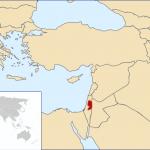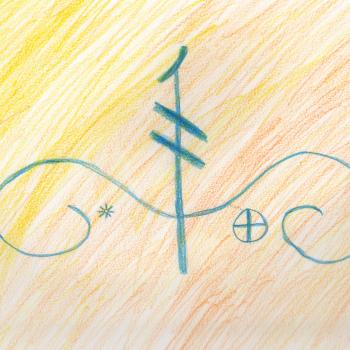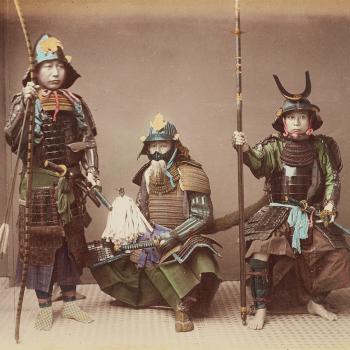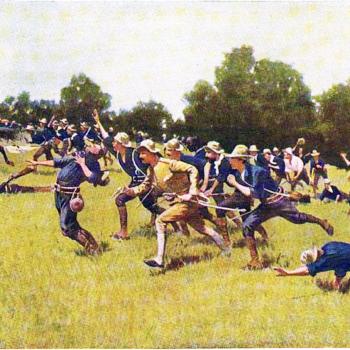We use words like “energy”, “power”, and “force” a lot in talking about magic.
In healing magic, there’s “energy work”. Wiccans talk about “raising the cone of power” in ritual. Aleister Crowley said that “Every force in the Universe is capable of being transformed into any other kind of force by using suitable means. There is thus an inexhaustible supply of any particular kind of force that we may need.”
But we have to be careful not to confuse our use of these terms with a physicist’s use.
In the context of physics, there is a very precise, mathematical definition of “energy” as the ability to do “work” — another word defined in a very specialized manner. According to a physicist, a weightlifter who returns the weight to the rack at the end of their set has done no “work” on it with respect to gravity.
So if that physicist tells us that our spell or ritual does not actually involve “energy”, we have to put their protest into context.
Imagine getting up in the morning and saying “I feel full of energy today!”, only to have a skeptical reductionist say “No no, you have the same amount of gravitational, electromagnetic, and strong and weak nuclear forces you did yesterday, and your mass has hardly changed. Within a small margin of error, you have the same energy you did yesterday.”
Or imagine watching a play, and talking about how one actor gave a powerful performance, and having someone reply “I measured carefully and that person was only putting out 90 watts, not much power at all!”
When we talk about energy, power, or force in magic, we’re not using these physical definitions. Our “energy” is an experiential, psycho-socio-emotional phenomenon. It’s not measured in kilowatt-hours or Newton-meters.
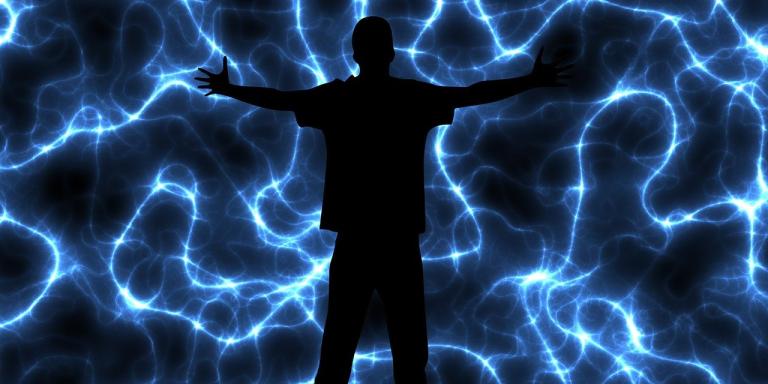
If physical energy is defined as the ability to do work upon a physical system, then maybe we can think of magical energy as the ability to do work upon a magical system — “the mind and…all that resembles it” as a Surrealist manifesto once put it.[“Surrealist”]
And just as the mind escapes easy measurement or definition, so does the energy of magical workings.
What we mean is more along the lines of “feeling full of energy”, or an artist being filled with a “creative force”. It’s about “vital powers”, in the sense that Edith Hamilton spoke of when she summarized the ancient Greek definition of happiness as “The exercise of vital powers along lines of excellence in a life affording them scope.”[Hamilton] It’s about possessing the capability for effective action in every dimension — physical, yes, but also mental, social, and spiritual.
Different cultures have different models of the thing we’re talking about. We call it “energy”, and our thoughts about it are colored by connotations of the “energy” of physics. Qi, ki, prana, mana, telesma, The Force, animal magentism, the grace of the Holy Spirit, libido, are other ways of talking about it, each colored by culture and context.
In classical Chinese Medicine, qi can be defined clinically by its effects. If qi is balanced and flowing freely, there is no pain; if there is pain, qi is not balanced or not flowing freely. If there is strength in the body, qi is present; if strength is absent, qi is lacking.
Similarly we talk about ki, the Japanese pronunciation of that same character, in the martial arts: the art of aikido, the way of harmonizing with energy; the idea of ki haku, projecting energy; the kiai shout. (Which means every kid who’s taken a karate class has worked with ki!) It’s there in reiki, the healing practice of laying on of hands, and also in the standard Japanese greeting “O genki desu ka?” — “How is your original ki?” It’s not mysterious or hidden.
Qi/ki is known by what is does, not by a reductionist explanation of what it is.
The “mana” of Melanesian and Polynesian cultures is another perspective on the thing we’re talking about here. As the English missionary-anthropologist Robert H. Codrington wrote, mana “works to effect everything which is beyond the ordinary power of men, outside the common processes of nature; it is present in the atmosphere of life, attaches itself to persons and to things, and is manifested by results which can only be ascribed to its operation.”[Blust]
Now, an anthropologist might complain that we are smearing together a bunch of concepts from different cultures which should be kept distinct. Qi, the anthropologist objects, is completely different from mana, they shouldn’t even be mentioned together!
And if you’re doing anthropology, yes, that is the correct take.
But we’re doing magic here. We’re in the liminal spaces between, and our mission is to find general principals behind these different perspectives. We shall quite certainly be crossing boundaries and coloring outside the lines. Also, within each of these cultures there is a lot of vagueness about just what qi, mana, and so on mean…anthropologists might be insisting on more firm and rigid boundaries than the societies in question actually have about these things!
We’ll mostly use the term “energy” to talk about this phenomenon, because it is most familiar to us in the modern West. But all these other culture’s models of this thing will be hanging around, informing our discussion.
The important point is that magicians can have all sorts different cultural or philosophical beliefs about how magic works — philosophical materialism or idealism, naturalism or supernaturalism, centered in society or centered in nature.
What matters about magic isn’t what we think about it but what it does: the change it produces in the world.
References
“A Surrealist Manifesto: The Declaration of January 27, 1925.” Bureaus de Recherches Surréalistes,
15, Rue de Grenelle. Signed: Louis Aragon, Antonin Artaud, Jacques Baron, Joë Bousquet, J.-A. Boiffard, André Breton, Jean Carrive, René Crevel, Robert Desnos, Paul Élaurd, Max Ernst. https://sourcebooks.fordham.edu/mod/1925surrealism.asp
Hamilton, Edith. The Greek Way. W.W. Norton, 1993. p 27. https://books.google.com/books?id=D3QwvF3GWOkC&lpg=PA22&dq=edith%20hamilton%20greek%20way&pg=PA27#v=onepage&q=exercise%20of%20vital%20powers&f=false
Blust, R. A. “Proto-Oceanic *mana Revisited.” Oceanic Linguistics, Vol 46 No 2, 2007 Dec, p. 404-423. https://www.academia.edu/21896750/Proto-Oceanic_mana_Revisited



